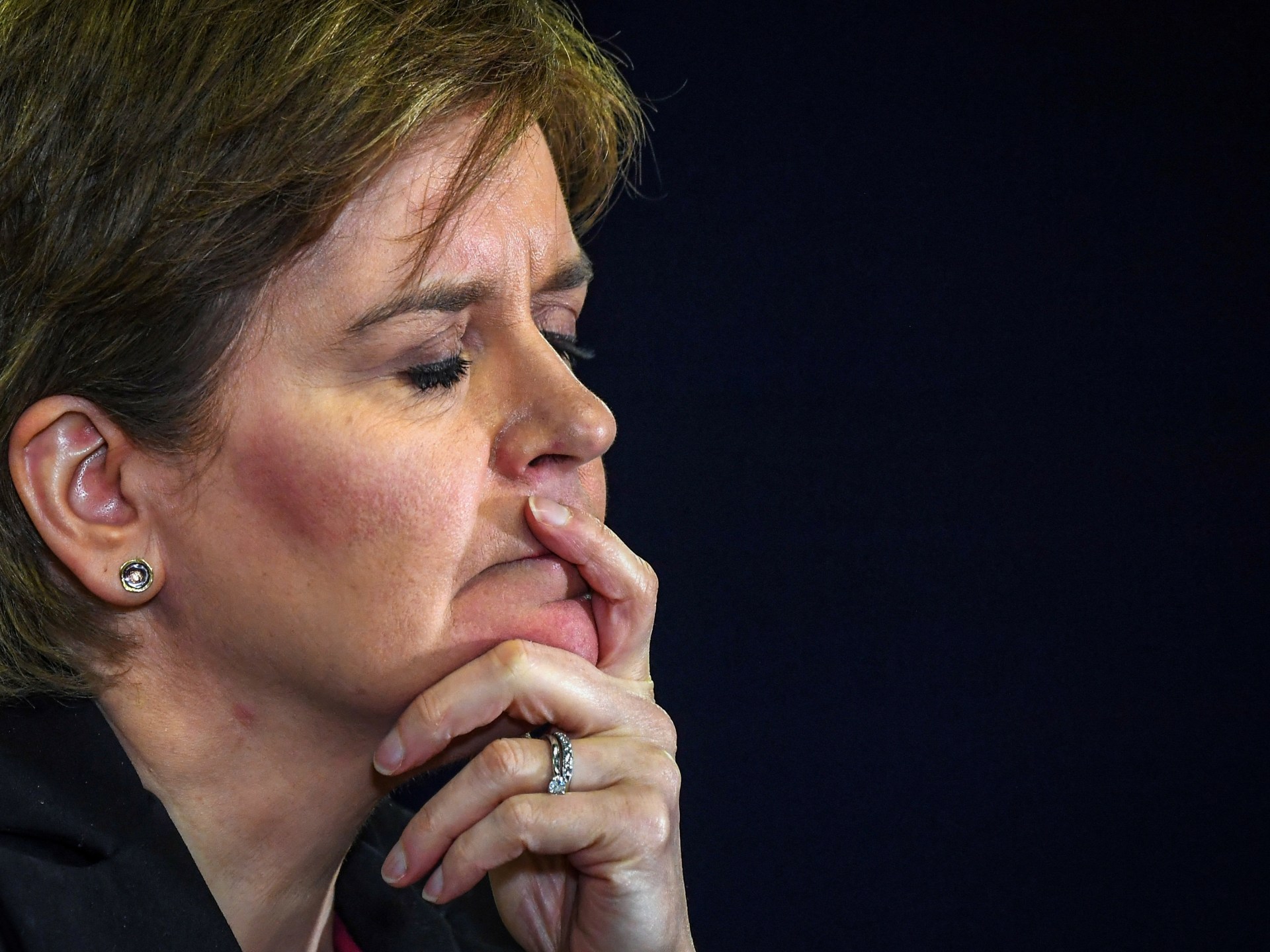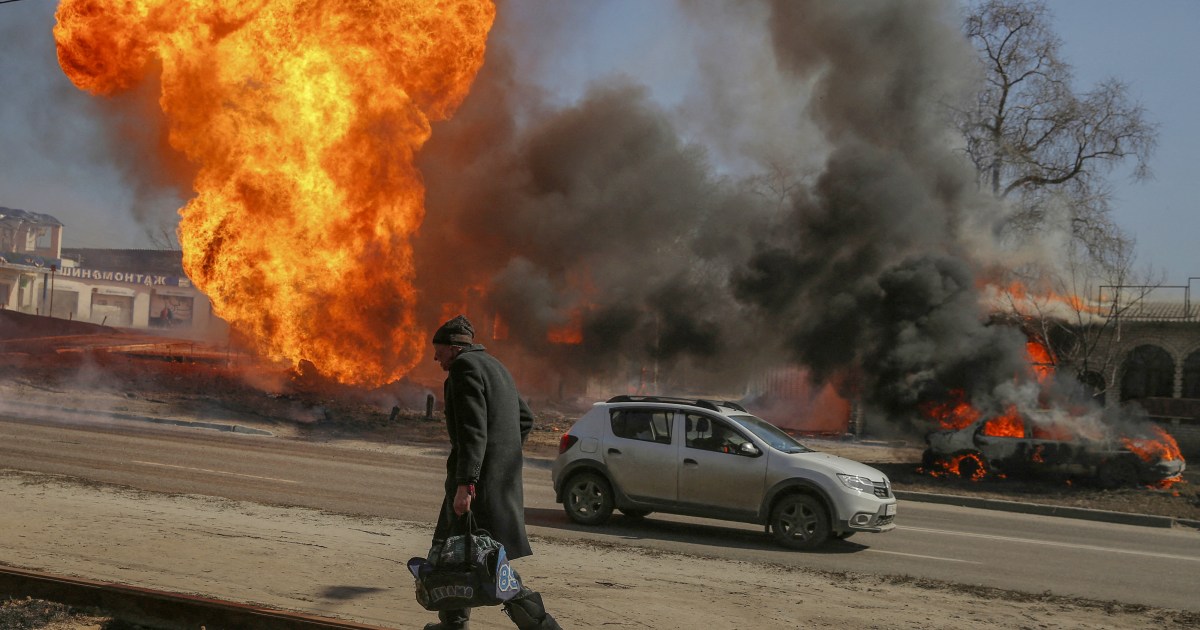Scotland’s gender recognition bill would have harmed women | Opinions
The United Kingdom is yet again engulfed in a civil war, and for once the issue causing conflict is not related to Brexit. This time it is a bitter squabble between the Scottish National Party (SNP) government in Edinburgh and the Conservative government in Westminster over a Scottish gender reform bill that is causing tremors across the British Isles.
In December, lawmakers in the devolved Scottish Parliament voted to pass the Gender Recognition Bill, by 86 votes to 39, despite valiant opposition from feminists and other human rights campaigners.
The bill effectively proposed a system of “self-identification” or “declaration” for trans people, which would replace current legislation requiring a trans person, over the age of 18, to “prove” that they have “lived in their acquired gender” for two years and produce two medical reports – including one signed by a medical practitioner from a list of appropriately qualified and experienced medics – to legally change their gender.
If it was not blocked by Westminster, the new bill would have allowed any person over the age of 16, born or living in Scotland, to change their sex in law, within a period as short as six months and without any need for an official diagnosis of gender dysphoria.
Under this regime, if a male person declares themselves female, they could apply for a Gender Recognition Certificate (GRC) and become, for all legal intents and purposes, female. In most instances, this would give them direct access to women-only spaces and facilities such as prisons, hospital wards, domestic violence refuges and rape crisis centres. They would also be able to apply for jobs designated for women under the 2010 Equality Act. In short, if coded into law, this bill would effectively render null and void women’s hard-earned sex-based rights and protections.
The concerns about the bill’s likely impact on women’s rights have prompted the UK government to block the bill citing a conflict with the UK Equality Act. That decision – which marked the first time the administration in London used a so-called “Section 35 order” to block a piece of legislation passed by the Scottish Parliament – met fury from both by transgender rights activists and Scottish nationalists.
Scottish nationalists ask why a decision taken by Scottish lawmakers in Scotland that would be relevant only to Scottish people concerns the UK Parliament. Is it really any of its business?
The answer to their questions is actually very simple: if coded into law, this bill would have an impact, not only in Scotland, but across the United Kingdom.
About 15,000 Scottish-born children aged 16+ currently attend school in England and Wales. Under the new law, any of these children would be able to use the Scottish system to change their sex in law while still at school. This would force all authorities and institutions in England – including their school – to recognise their acquired gender without question. The same would be true for any Scottish person with a GRC who travels to England or Wales to work, live or receive medical care.
The UK government rejected sex self-ID for England and Wales in 2020. Allowing the Scottish Gender Recognition Bill would have introduced self-ID to these territories through the backdoor.
As Westminster and Holyrood continue to clash over the Gender Recognition Bill, trans rights activists in both countries claim the entire ordeal is a conservative attack on trans people. They insist the bill would do nothing other than allow trans individuals to avoid going through a “bureaucratic nightmare” to be recognised as their “true selves” in law. They say trans people without a GRC can already access most women-only spaces in the UK under existing legislation, and thus the introduction of a system of self-ID would not cause any additional harm to anyone. They claim concerns expressed by many women about opportunistic sex offenders potentially taking advantage of a self-ID regime to gain easy access to women-only spaces are no more than a “dog whistle” for “transphobia”.
But women in Britain are already suffering from male-bodied people trying to gain access to women-only spaces, and thus to vulnerable women, by saying they identify as women. And it is obvious that a self-ID regime being accepted in Scotland would exacerbate this problem.
Take male-bodied, convicted sex offenders who identify as women demanding to serve their sentences in female prisons.
In 2014, the Scottish Prison Service (SPS), in partnership with trans activist group Scottish Trans Alliance, introduced a Gender Identity and Gender Reassignment Policy, which advises that where an individual is permanently living in a gender other than that assigned at birth, “establishment allocation should usually be the new gender in which they are living”.
This policy already resulted in male-bodied convicted rapists being held in women’s prisons where they can continue to harm women. Adam Graham, who is now known as “Isla Bryson”, is one such rapist.
In England and Wales, the policy is different – there is no obligation to move transgender prisoners according to their wishes – and most transwomen in prison are held in men’s prisons. However, even this did not prevent male-bodied predators from gaining access to female prisons by claiming they identify as women. In 2018, it was revealed that a male-bodied sex offender who identifies as a transwoman, “Karen White”, has been placed in a women’s prison in England and committed further acts of sexual assault and harassment while there.
In light of these examples, it is impossible to argue that self-ID legislation like the one proposed by the SNP government would not be abused by male predators looking to game the system and harm vulnerable women.
The likes of “Isla Bryson” and “Karen White” are already being placed in female facilities to the detriment of women. The introduction of a self-ID regime, which would allow any man to simply declare they are a woman and be recognised as such in law, would undoubtedly make the problem worse.
After weeks of passionately defending the bill, and even rejecting proposed amendments that would have banned rapists from self-identifying as women while awaiting trial, Scotland’s First Minister Nicola Sturgeon now appears to be recognising the problem.
When asked whether or not “Isla Bryson” should be considered a woman, Sturgeon replied, “I think that rapist should be considered a rapist. That’s what I think.”
“That individual has been convicted of rapes and that therefore is the terminology. I’m not going to get into the individual circumstances of that particular individual’s claims to be a woman because I don’t have enough information about that.”
Sturgeon is clearly keeping at least an open mind as to the validity of Bryson’s claims that they are a woman, and thus ignoring the entire basis of her new law – because the whole point of self-ID is that if a person declares they’re a woman, they are a woman.
Moreover, following a massive public outcry, and warnings not only from UK feminists but also international experts, Sturgeon’s government has started to move away from the idea of self-ID without any conditions. Convicted rapist “Isla Bryson” has been moved from the women’s prison he was originally in, and sent to the men’s estate. The SNP’s Justice Secretary has also announced a temporary ban on convicted sex offenders (as well as those with any history of violence against women) in women’s prisons. The SPS is conducting a review of the management of transgender inmates – but it is all too little, too late.
The fact that the demands of these sexual predators were ever prioritised over the safety and wellbeing of women shows what little regard many politicians have for women who have no choice but to live at the sharp end of their so-called “trans inclusive” policies.
Of course, we should all support trans people and their demands to live safely as equal citizens in this country. But when the accommodations made for transwomen are abused by male-bodied predators to harm women, this is a disaster. There is a clash of rights, and we must safeguard women – and we must find a way to do this without allowing transpeople to be victimised by bigots.
So what is the solution?
Back in the 1970s, when I came out as a young lesbian, trans people were my friends and natural allies. That is how it should be. Those of us who live on the margins of society and are discriminated against should have each other’s backs. In this bloody battle, we are all victims.
Ultimately, because allowing anyone claiming to be a transwoman access to single-sex spaces is a recipe for disaster, we must help build a third space. Feminists, including myself, have been offering to help transwomen build specific services for those experiencing male violence – such as domestic violence, abuse and sexual assault. After all, women-only services designed to protect women from male violence were built by the early pioneers of the Women’s Liberation Movement (in the UK and US) back in the 1960s and 1970s, with no help or funding from governments. It is perhaps time for trans people to do the same. I would imagine help from state agencies would be forthcoming, and everyone, except for opportunistic sexual predators, would welcome such an initiative.
The views expressed in this article are the author’s own and do not necessarily reflect Al Jazeera’s editorial stance.





Pingback: Fysio Dinxperlo
Pingback: coldfire carts https://exotichousedispensary.com/product/coldfire-carts/
Pingback: magic mushroom therapy
Pingback: Noord-Brabant Limburg Zeeland Online medicatie kopen zonder recept bij beste Benu apotheek alternatief
Pingback: ข่าวบอล